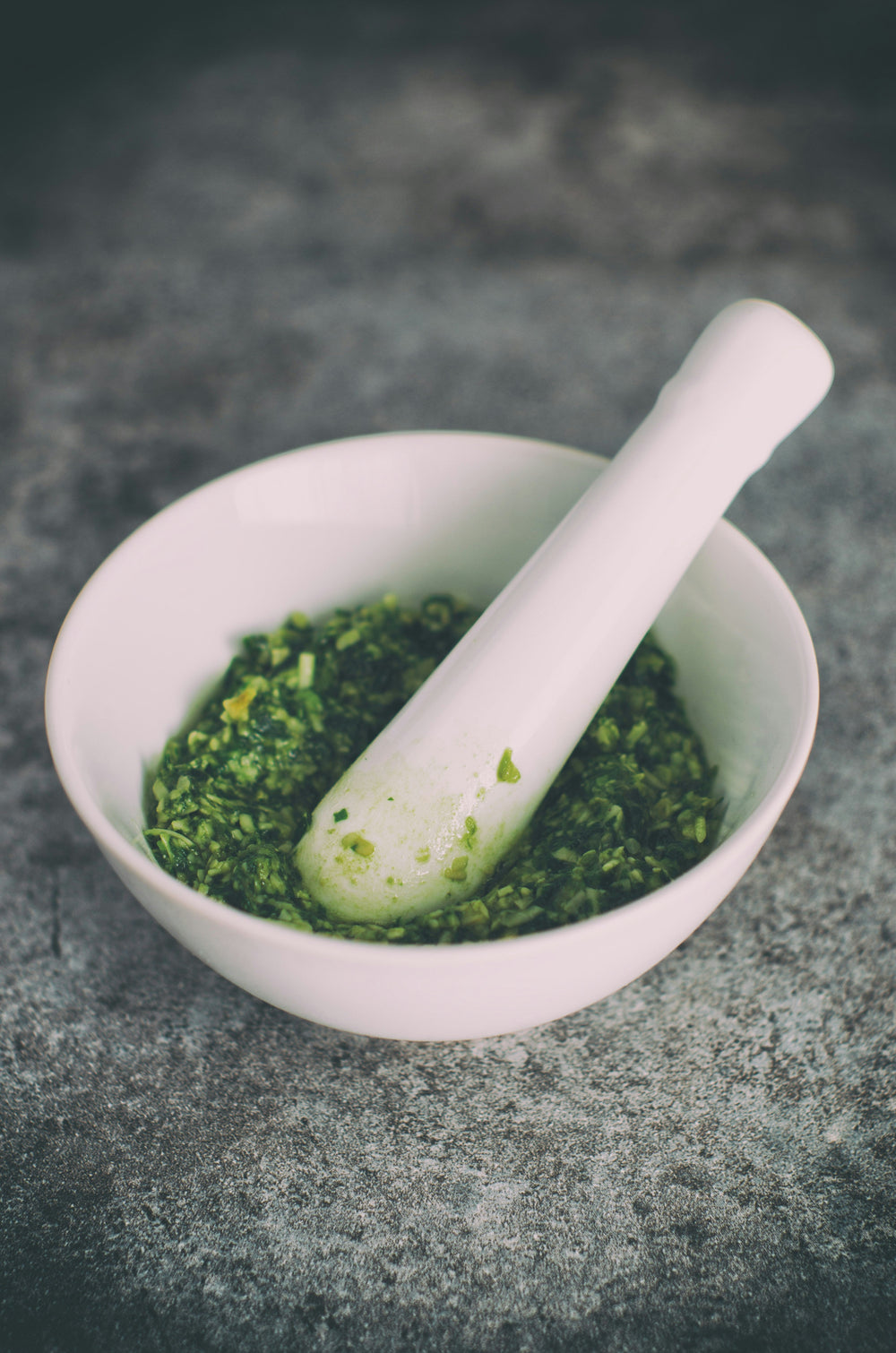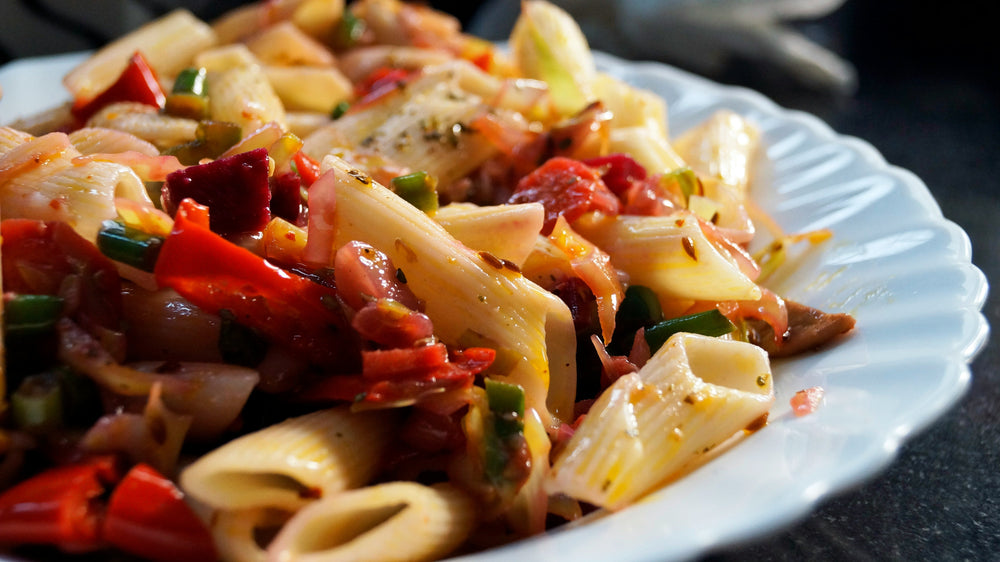do you have ibs? what you need to know.
Do You Have IBS? What You Need To Know Bloating, cramping, unpredictable bathroom trips - IBS can make everyday life a struggle. At its core, it’s a gut-brain miscommunication issue, but understanding how your gut plays a role can help you manage it better. What We Know About the Gut in IBS Irritable Bowel Syndrome (IBS) is a common digestive condition that affects millions of people worldwide, with estimates suggesting that between 5% and 10% of the global population suffers from it. IBS is often linked to an imbalance in gut bacteria, with lower levels of beneficial strains like Bifidobacteria and Lactobacilli. These bacteria help prevent harmful overgrowth, strengthen the gut lining, and support immune function - all crucial for digestive health. They perform vital roles such as: Competing with harmful bacteria to prevent their overgrowth Producing short-chain fatty acids (SCFAs), such as butyrate, which help to maintain the integrity of the gut lining, preventing harmful substances from entering the bloodstream Interacting with immune cells and supporting immune responses, since 70% of the immune system is housed in the gut Common Deficiencies in IBS People with IBS are also often deficient in several important nutrients that contribute to gut health. Some of the most common deficiencies include: Vitamin D: Vital for immune function and maintaining the integrity of the gut lining. Zinc: Helps repair and maintain the gut barrier, which is critical for overall digestive health. Magnesium: Supports muscle relaxation, which is particularly important for smooth muscle function in the gut. Synbiotics, Postbiotics, and Their Role in IBS Treatment Synbiotics, which combine probiotics and prebiotics, aim to enhance the effectiveness of both by improving the survival of probiotics in the digestive system. Some research suggests that synbiotics may help with bloating and digestion in IBS, but more studies are needed...

Do You Have IBS? What You Need To Know
Bloating, cramping, unpredictable bathroom trips - IBS can make everyday life a struggle. At its core, it’s a gut-brain miscommunication issue, but understanding how your gut plays a role can help you manage it better.
What We Know About the Gut in IBS
Irritable Bowel Syndrome (IBS) is a common digestive condition that affects millions of people worldwide, with estimates suggesting that between 5% and 10% of the global population suffers from it. IBS is often linked to an imbalance in gut bacteria, with lower levels of beneficial strains like Bifidobacteria and Lactobacilli. These bacteria help prevent harmful overgrowth, strengthen the gut lining, and support immune function - all crucial for digestive health. They perform vital roles such as:
-
Competing with harmful bacteria to prevent their overgrowth
-
Producing short-chain fatty acids (SCFAs), such as butyrate, which help to maintain the integrity of the gut lining, preventing harmful substances from entering the bloodstream
-
Interacting with immune cells and supporting immune responses, since 70% of the immune system is housed in the gut
Common Deficiencies in IBS
People with IBS are also often deficient in several important nutrients that contribute to gut health. Some of the most common deficiencies include:
-
Vitamin D: Vital for immune function and maintaining the integrity of the gut lining.
-
Zinc: Helps repair and maintain the gut barrier, which is critical for overall digestive health.
-
Magnesium: Supports muscle relaxation, which is particularly important for smooth muscle function in the gut.
Synbiotics, Postbiotics, and Their Role in IBS Treatment
Synbiotics, which combine probiotics and prebiotics, aim to enhance the effectiveness of both by improving the survival of probiotics in the digestive system. Some research suggests that synbiotics may help with bloating and digestion in IBS, but more studies are needed to confirm their long-term benefits.
Postbiotics, the metabolites produced by probiotics, are emerging as a potential treatment for IBS. Although still in the early stages of research, postbiotics may help reduce inflammation and improve symptoms, especially in those with diarrhea-predominant IBS. Further studies are necessary to determine their effectiveness in clinical settings.
Prebiotics and Their Impact on IBS
Prebiotics are non-digestible fibres that promote the growth of beneficial bacteria in the gut. These fibres are fermented by gut bacteria, producing SCFAs that possess anti-inflammatory properties. This can help alleviate common IBS symptoms like bloating and gas. Clinical trials have shown that low to moderate doses of prebiotics can provide symptom relief, although higher doses may exacerbate bloating and discomfort.
The efficacy of prebiotics in managing IBS symptoms varies across studies. For instance, fructooligosaccharides (FOS) and galactooligosaccharides (GOS) have been shown to promote the growth of beneficial bacteria, but symptom relief has been inconsistent. This suggests that an individualized approach may be necessary when using prebiotics to treat IBS.
Microbiome-Targeted Treatments for IBS
Probiotics are another popular option for managing IBS symptoms. These beneficial bacteria help regulate gut health by increasing the number of good bacteria and promoting the production of SCFAs. Certain probiotic strains, such as Bifidobacterium and Lactobacillus, have shown promise in alleviating IBS symptoms, including abdominal pain and bloating. However, the effectiveness of probiotics can vary based on the specific strain and patient characteristics.
Research has found that combining different probiotic strains may be more beneficial than using a single strain. For example, combinations of Escherichia and Streptococcus have been shown to reduce abdominal pain and bloating. While the evidence is still evolving, probiotics appear to offer relief for many IBS sufferers, although the effects may vary depending on the individual.
Conclusion
There’s no one-size-fits-all fix for IBS, but taking care of your gut health can make a real difference. By addressing deficiencies, incorporating synbiotics, postbiotics, prebiotics, and targeted probiotics, you might feel more in control. Consulting with a healthcare provider to create a personalised treatment plan is the best approach to managing IBS effectively.
References
Bontempo, S. A., Ghosh, S., & Mazzoli, R. (2020). The Role of Gut Microbiome in Irritable Bowel Syndrome. PMC, 11674646. https://doi.org/10.1002/abc123456
Kassinen, A., Salminen, S., & Rautonen, N. (2020). Probiotics, Prebiotics, and Synbiotics in the Treatment of Irritable Bowel Syndrome. PMC, 8412098. https://doi.org/10.1002/abc789123
Tanner, A., Kjøbli, J. H., & Johansson, M. (2020). Role of Vitamin D and Magnesium in the Modulation of the Gut Microbiota. PMC, 7071260. https://doi.org/10.1002/abc456789
Soft, satisfying, and subtly sweet—these breakfast cookies are made to fuel your morning the right way. With fibre-rich oats, plant-based protein, and antioxidant-packed matcha, they’re a gut-friendly grab-and-go option that doesn’t compromise on flavour or function.
Emily's light, gut-friendly crêpes are the perfect balance of fibre, protein, and healthy fats to support digestion and keep you feeling great.
Start your day with a delicious and nutritious breakfast option - Carrot Cake Oats. Filled with fibre diversity to promote healthy digestion.













